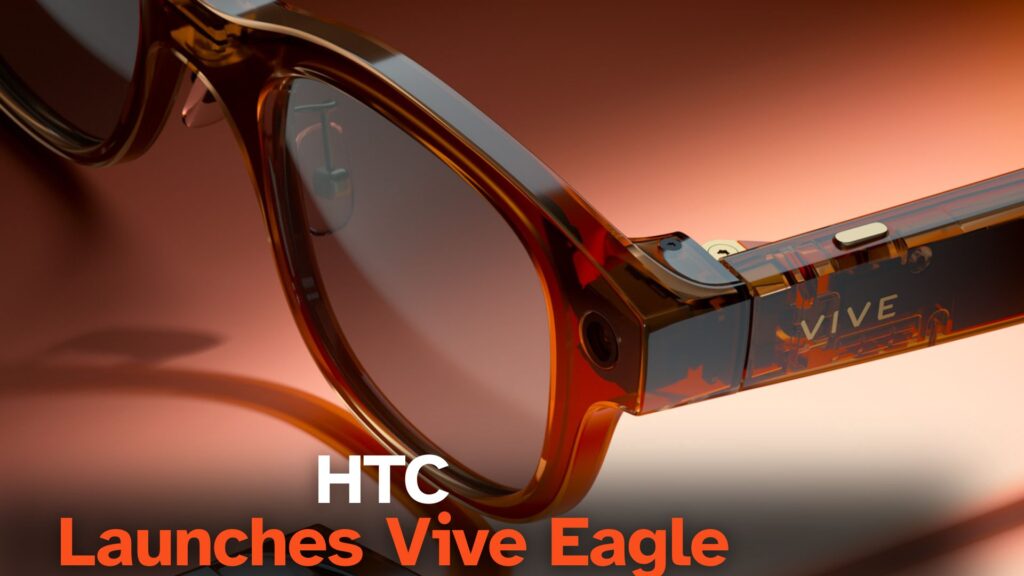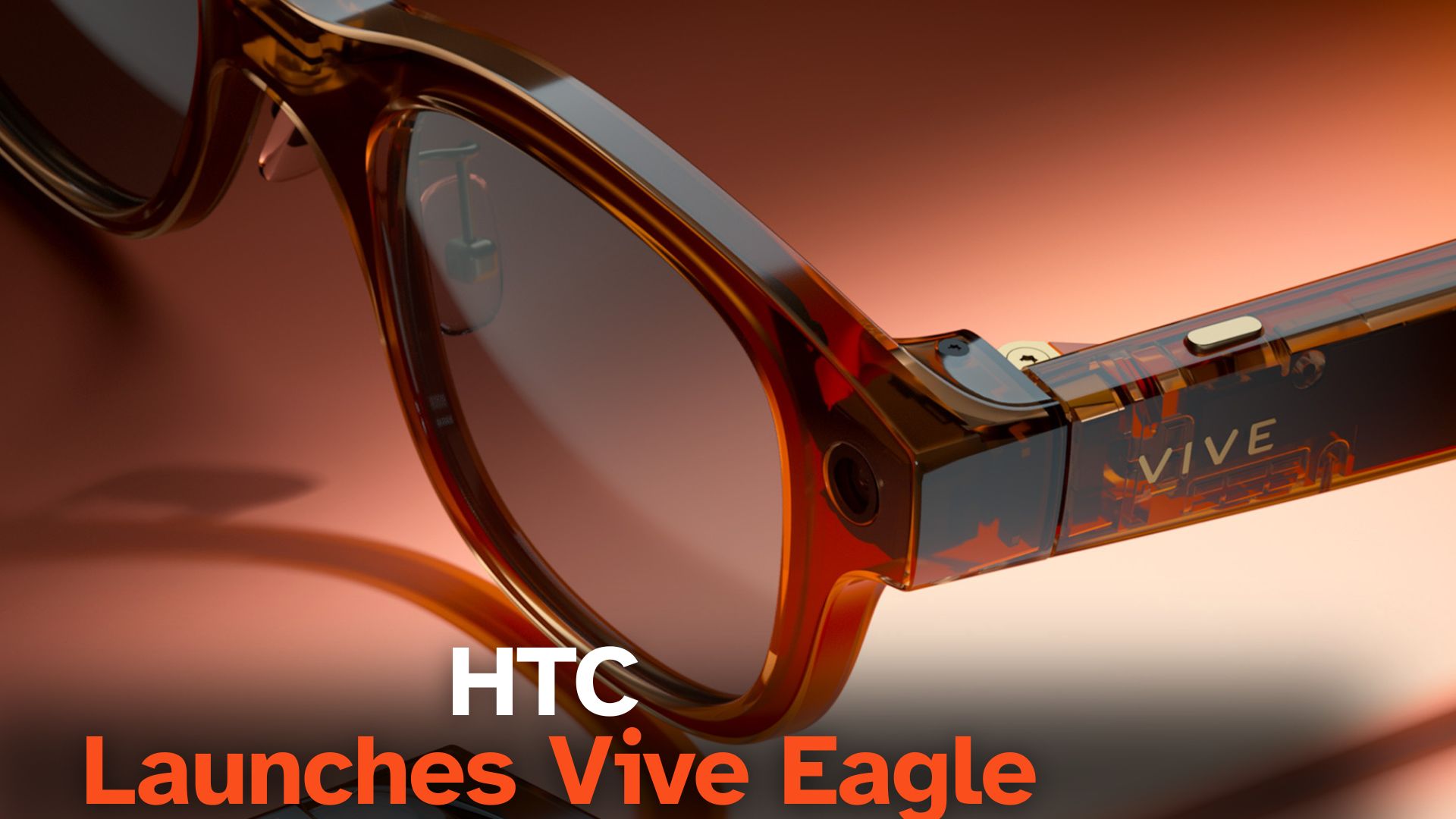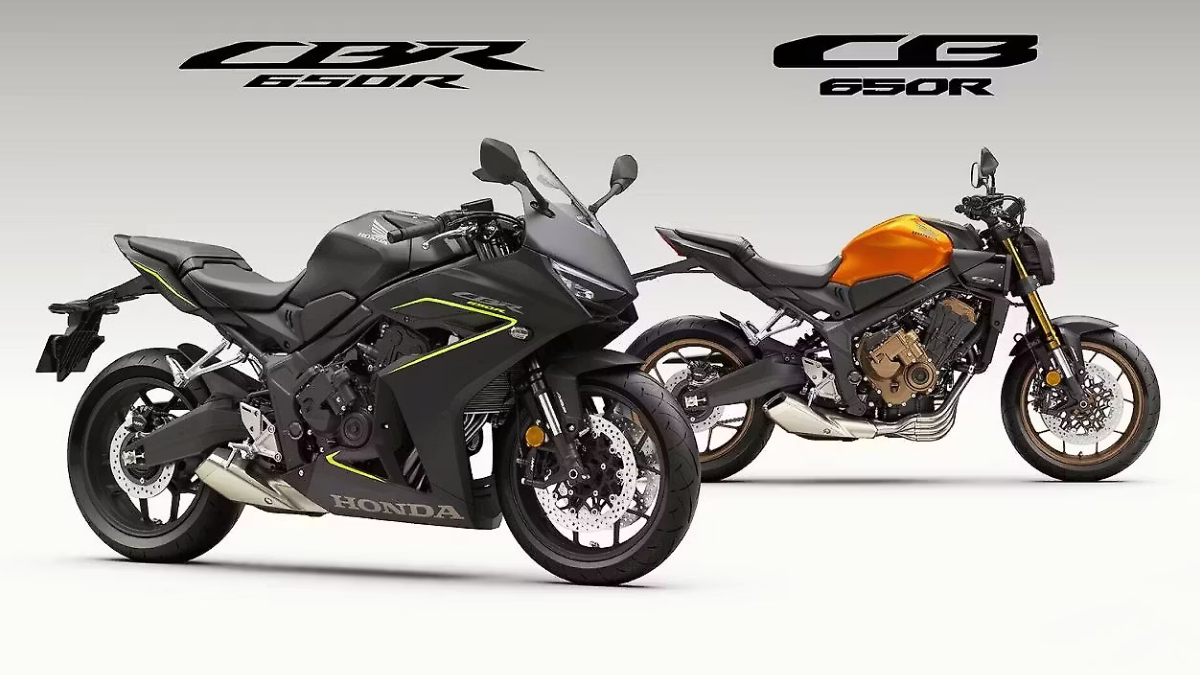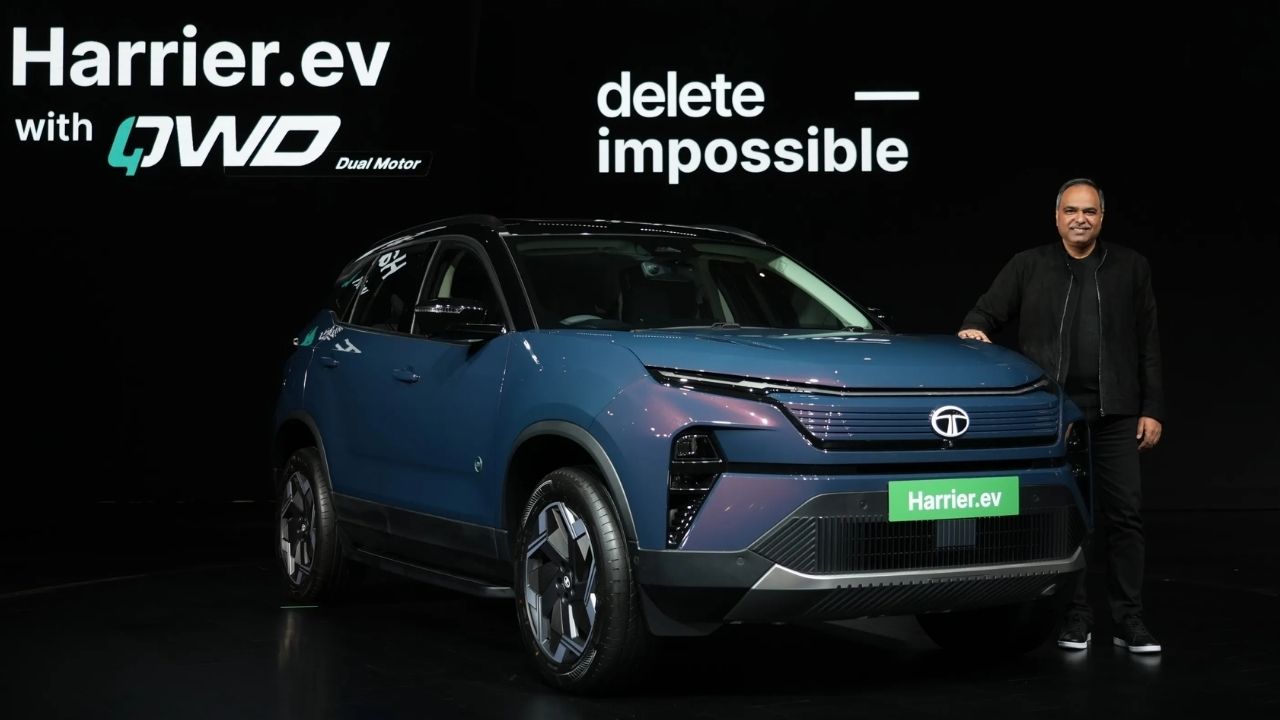HTC Corporation, a global leader in immersive technology, has officially unveiled its latest innovation in the wearable tech space the Vive Eagle, a pair of AI-enabled smart eyewear designed to merge lifestyle convenience with intelligent computing. The launch marks HTC’s entry into the growing market of smart glasses, competing directly with Meta, Apple, and Google in the race to dominate AI-powered wearable devices.

A New Era of Smart Eyewear
The Vive Eagle is not just a stylish accessory but also a multifunctional AI-powered device. It allows users to access artificial intelligence features such as voice-assisted photography and videography, music playback, note-taking, and real-time translations. These features are seamlessly integrated into lightweight eyewear frames, offering users a futuristic yet practical tool for daily life.
Charles Huang, Senior Vice President of HTC, described the product as more than just a gadget.
“Vive Eagle represents HTC’s newest exploration in the realm of intelligent living and personal wearables. By combining our pursuit of design excellence with expertise in immersive user experiences, this product is more than just a pair of glasses it’s a way to live life with greater freedom.”
Summary Table
Feature |
Details |
|---|---|
Product |
HTC Vive Eagle Smart Eyewear |
Weight |
Under 49 grams |
Battery Life |
36 hours standby, 4.5 hours music playback |
Charging |
Magnetic fast charging, 50% in 10 minutes |
Camera |
12MP ultra-wide with AI voice control |
AI Assistant |
Supports ChatGPT and Google Gemini |
Translation |
Real-time, 13 languages supported |
Availability |
Currently only in Taiwan |
Pre-Order Dates |
August 14 – August 31 |
Release Date |
September 1 |
Price |
About $520 |
Official Website |
Competing with Meta, Apple, and Google
The launch comes shortly after Meta Platforms Inc. introduced its Oakley Meta HSTN smart glasses, which also feature an integrated AI assistant. Similarly, Apple and Google have outlined their own plans for AI-assisted eyewear, signaling a clear industry trend. With the Vive Eagle, HTC aims to position itself as a serious contender in this emerging market.
Design and Comfort
Weighing under 49 grams, the Vive Eagle sits on the heavier end of standard eyewear but remains within a comfortable range for extended use. The device integrates all of its AI computing technology within the frame, eliminating the need for external processors or accessories. Despite its compact form, the glasses manage to house a built-in battery, cameras, speakers, and microphones, making them a complete smart solution.
Battery and Charging Capabilities
Battery life is a critical aspect of wearable technoloSet featured imagegy, and the Vive Eagle delivers a balance between endurance and quick recharging. Key highlights include:
-
36 hours of standby time
-
4.5 hours of continuous music playback
-
Magnetic fast charging that delivers 50% charge in just 10 minutes
This fast-charging feature allows users to conveniently recharge the glasses using a power bank or smartphone when on the go.
Camera and AI Assistant Features
The Vive Eagle is equipped with a 12-megapixel ultra-wide camera that supports voice-activated commands. Users can simply say, “Hey Vive, take a photo,” to capture what they see in real time. This feature is particularly useful for spontaneous photography, whether for memorable moments, travel experiences, or casual snapshots.
In addition, the AI assistant built into the glasses integrates with multiple AI platforms, including OpenAI’s ChatGPT and Google’s Gemini, providing users with a range of intelligent capabilities. These include:
-
Taking notes
-
Delivering restaurant and travel recommendations
-
Providing real-time search results
-
Offering context-based commentary
Real-Time Translation Capabilities
One of the most groundbreaking features of the Vive Eagle is its real-time translation functionality. The glasses can translate content captured by the camera into spoken audio across 13 supported languages, including:
-
English
-
French
-
German
-
Greek
-
Italian
-
Spanish
-
Japanese
This eliminates the need for opening translation apps on a phone, streamlining communication and travel experiences.
Market Availability and Pricing
Currently, the Vive Eagle is only available in Taiwan. Pre-orders are open between August 14 and August 31, with an official release scheduled for September 1. The smart glasses are priced at approximately $520.
As of now, HTC has not confirmed plans to release the product in the United States or Europe, though industry analysts expect expansion if the initial launch performs well.
Lifestyle Meets Technology
James Chang, President of luxury eyewear retailer 2020EYEhaus, commented on the growing demand for stylish yet functional wearable tech.
“We’re seeing growing demand for tech products that offer both functionality and a strong lifestyle aesthetic. Vive Eagle brings together beautiful design and practical features.”
With a sleek form factor and practical AI features, HTC is targeting not only tech enthusiasts but also consumers who value fashion and lifestyle integration.
FAQs
1. What is HTC Vive Eagle?
A. The Vive Eagle is HTC’s new AI-enabled smart eyewear designed for photography, translation, music playback, and voice-assistant integration.
2. How long does the battery last?
A. The device offers up to 36 hours of standby time and 4.5 hours of continuous music playback.
3. Can I charge it quickly?
A. Yes, magnetic fast charging provides up to 50% power in just 10 minutes.
4. Which AI assistants does it support?
A. The glasses can connect to popular AI chatbots, including OpenAI’s ChatGPT and Google’s Gemini.
5. What languages does it support for translation?
A. It supports real-time translation in 13 languages, including English, French, German, Greek, Italian, Spanish, and Japanese.
6. Is the Vive Eagle available worldwide?
A. Currently, it is only available in Taiwan. HTC has not confirmed international release plans.
7. How much does it cost?
A. The smart eyewear is priced at about $520.
For More Information Click HERE








